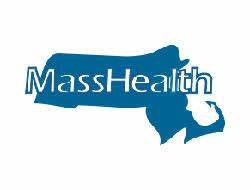
Managing diabetes involves a variety of essential supplies and medications, from glucose monitors and test strips to insulin a nd syringes. If you’re a Massachusetts resident covered by MassHealth, you may wonder which diabetic supplies are included in your plan. A critical question many ask is: Does Masshealth Pay For Liquid Glucose? This guide will explore the scope of diabetic supplies covered by MassHealth and clarify whether liquid glucose is among the covered items.
nd syringes. If you’re a Massachusetts resident covered by MassHealth, you may wonder which diabetic supplies are included in your plan. A critical question many ask is: Does Masshealth Pay For Liquid Glucose? This guide will explore the scope of diabetic supplies covered by MassHealth and clarify whether liquid glucose is among the covered items.
Understanding MassHealth’s Coverage for Diabetic Supplies
MassHealth, Massachusetts’ Medicaid program, provides comprehensive health insurance for eligible residents. One of its key goals is to ensure access to necessary medical supplies, including those essential for managing chronic conditions like diabetes.
MassHealth covers a wide range of diabetic supplies, making it easier for individuals with diabetes to maintain their health and prevent complications. However, understanding what is covered, the approval process, and any associated costs can be challenging.
Common Diabetic Supplies Covered by MassHealth
MassHealth provides coverage for various diabetic supplies, including:
1. Glucose Monitoring Devices
Monitoring blood sugar levels is crucial for people with diabetes. MassHealth typically covers the cost of:
- Blood glucose meters
- Continuous glucose monitors (CGMs), such as Freestyle Libre or Dexcom, with prior authorization
- Testing strips
2. Insulin and Related Supplies
Insulin, a life-saving medication for many individuals with diabetes, is covered under MassHealth. Related supplies include:
- Insulin pens or vials
- Syringes
- Pen needles
3. Other Essential Supplies
To support comprehensive diabetes care, MassHealth also covers:
- Lancets and lancing devices for blood testing
- Alcohol swabs
- Sharps disposal containers
These supplies are typically provided under durable medical equipment (DME) benefits or through prescription coverage.
Liquid Glucose: A Key Tool for Managing Hypoglycemia
Liquid glucose is a fast-acting sugar solution used to manage hypoglycemia (low blood sugar), a common and dangerous condition for individuals with diabetes. Unlike slower options like food or drink, liquid glucose delivers a rapid glucose boost, making it a vital tool in emergencies.
Common forms of liquid glucose include:
- Glucose gel packets
- Liquid glucose drinks
- Glucose tablets (dissolvable or chewable alternatives)
Does MassHealth Pay for Liquid Glucose?
To determine whether MassHealth pays for liquid glucose, it’s important to understand the classification of this item. Liquid glucose is often categorized as a non-prescription or over-the-counter (OTC) product. Here’s how MassHealth handles OTC products:
1. Coverage of OTC Diabetic Supplies
MassHealth does provide coverage for certain over-the-counter diabetic supplies if they are deemed medically necessary and prescribed by a healthcare provider. Liquid glucose can qualify under these conditions if it is prescribed to treat hypoglycemia and a pharmacy submits the claim for reimbursement.
2. Prior Authorization Requirements
For some diabetic supplies, including glucose management tools like continuous glucose monitors or liquid glucose, prior authorization may be required. This involves a healthcare provider submitting documentation to justify the medical necessity of the item.
3. Pharmacy Benefits
MassHealth members should check their pharmacy benefits to confirm whether liquid glucose is listed. The plan may cover specific brands or forms of glucose gel or liquid drinks. It’s always best to ask your pharmacist or healthcare provider to clarify coverage.
How to Access Diabetic Supplies Through MassHealth
If you’re a MassHealth member, obtaining diabetic supplies involves a straightforward process:
1. Consult Your Healthcare Provider
Your doctor or diabetes educator can recommend the necessary supplies, including whether liquid glucose should be part of your treatment plan. They can also provide prescriptions or documentation required for coverage.
2. Work with Approved Pharmacies or DME Providers
MassHealth requires members to use approved pharmacies or durable medical equipment providers for covered supplies. Confirm that your provider works with MassHealth to ensure smooth reimbursement.
3. Understand Your Plan’s Requirements
Some supplies require prior authorization or are only covered under specific circumstances. For instance, continuous glucose monitors may only be approved for individuals with certain criteria.
Tips for Navigating MassHealth Coverage
1. Stay Informed
MassHealth updates its coverage policies periodically. Stay informed about the latest covered items by visiting the MassHealth website or consulting with customer service.
2. Request Prior Authorization Early
If your doctor recommends a supply or medication requiring prior authorization, start the process early. Approval can take time, and delays could affect your access to critical supplies.
3. Keep Open Communication
Discuss your needs with your healthcare provider and pharmacist regularly. If liquid glucose or other items aren’t covered, they may suggest alternatives that meet your needs while remaining affordable.
What to Do If Liquid Glucose Isn’t Covered
If you find that MassHealth doesn’t pay for liquid glucose or only covers specific brands, consider these options:
1. Request a Prescription Alternative
Your doctor might prescribe an alternative, such as glucose tablets or other fast-acting carbohydrates, which could be covered under your plan.
2. Explore Community Resources
Several organizations, such as diabetes foundations or local health programs, provide assistance with diabetic supplies for individuals facing financial barriers.
3. Consider Affordable OTC Options
While coverage may vary, liquid glucose products are often available at relatively low prices over the counter. Purchasing these items directly may be a cost-effective solution for occasional use.
Conclusion
MassHealth offers broad coverage for essential diabetic supplies, helping individuals manage their condition effectively. Common items like glucose meters, test strips, insulin, and syringes are readily available under the plan. While liquid glucose may not always be explicitly covered, it can qualify if prescribed by a healthcare provider and deemed medically necessary.
To ensure you get the most out of your MassHealth benefits, work closely with your healthcare provider to identify the supplies you need, confirm coverage, and explore alternatives when necessary. For Massachusetts residents managing diabetes, MassHealth provides critical support, and understanding its benefits can help you maintain your health while minimizing out-of-pocket costs. Visit Health Dady to get more information.





Leave a Reply